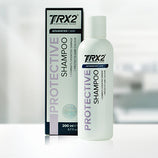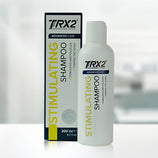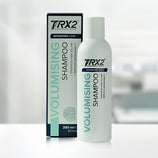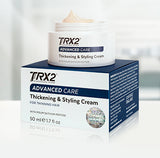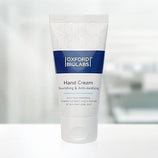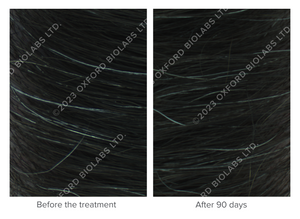Most of us are familiar with the kind of tiredness that convinces us it’s fine to sleep with our mascara on now and then. Trudging to the bathroom for the nightly cleansing routine may not always feel viable, but what if this is the reason you are losing eyelashes? The bad news is that it’s true: leaving your makeup on overnight can damage your precious lashes. The good news is that even if you have badly damaged eyelashes, there are things you can do to restore them to their former glory… and beyond.
Just like our skin (and the hair elsewhere on our bodies), our lashes need a break from both products and manipulation from time to time. There are many ways to look after your eyelashes so that you need never suffer the fall out again.
In this article we’ll go over the basics of why and how makeup can damage your eyelashes, as well as a few other tips for keeping your lashes healthy all year round…
Is makeup the reason why you’re losing your eyelashes?
There’s no getting around it: leaving your mascara on overnight is a major cause of eyelash loss. Your eyelashes are soft and fragile, which is obvious when you rub your eyes and find you’ve pulled a couple out. What’s more, these delicate hairs need the occasional break from heavy products so that they can grow freely, without the hair cycle being disrupted. Like the hairs on your head your eyelash hairs grow and fall out in cycles, so remember that it’s normal for them to appear sparser at certain stages of the hair growth cycle.
When you leave your makeup on overnight, you challenge both your skin and your eyelashes. While your skin can break out in spots (as bacteria accumulates and it doesn’t get a chance to breathe), your eyelashes suffer in a different way. Mascara stiffens your lashes, which leaves them brittle and prone to breakage. So when you get into bed and crush those stiff lashes against your pillow, the outcome is predictable. When you do remove your mascara it should be done gently, and with gentle products. Note that waterproof mascara is difficult to remove and the process of doing so can really stress your lashes.
Another of the reasons makeup causes eyelash loss is that old products can harbour bacteria. Inconvenient as it may be, makeup has a use by date. Unfortunately that isn’t written on the packet, as expiry partly depends on the way you use it. A general rule of thumb is that regularly used mascara will expire at around three months, so if yours has been around longer than that, it’s time to replace it. If your mascara wand is harbouring bacteria, you might lose eyelashes… and if you’re even less lucky you could develop an eye infection! While we’re on the subject of bacteria, it goes without saying that you shouldn’t share your makeup, for the same reasons.
Other reasons for losing eyelashes
Alongside regular makeup use, you might be tempted to put your eyelashes through other stressful beauty regimes. Let’s take a look at some beauty routines that damage eyelashes, since forewarned is forearmed!
Curling your eyelashes
Lash curling is commonplace, but that metal contraption isn’t a friend to your lashes… especially when you use it after applying mascara. That’s when your lashes are at their least flexible, which means lash breakage is on the horizon. If you’re going to use eyelash curlers, make sure it’s before mascara application - and don’t curl too close to the rim, as that can damage the hair cuticles. We also recommend not using heated curlers because heat damages hair. Heated curlers could make your eyelashes brittle and weak over time.
Tinting your lashes
Lash tinting may give your eyes a little extra ‘pop’ but the fact remains that chemical dyes are going to have a negative effect on your eyelashes. Some of the chemicals included in lash tint formulas are very strong and can cause lashes to fall out. So if you really want to tint your eyelashes, it’s best to make it an occasional thing.
Rubbing your eyes
It’s easily done, but if you are looking to preserve your eyelashes, eye rubbing is a no-go zone. When you vigorously rub your eyes you’ll not only pull the skin around (causing premature wrinkles) – you’ll also pull out your eyelashes. The eye area should always be handled with care.
Eyelash extensions
Lash extensions are all the rage at the moment and they can certainly look pretty… but those false lashes may also come at a non-monetary price. Some salons take care not to install excessively long, heavy lashes or use harsh glues, but even then, eyelash extensions can be a lot for your natural lashes to take.
Lash extensions are up there among the reasons for losing your eyelashes. They can cause permanent damage to the follicles, and your natural lashes are likely to fall out prematurely. Even the temporary stick-on ones should be removed carefully – rip them off and you’ll likely rip out your own lashes too. Instead, use an oil-based cleanser to dissolve the lash glue.
How you can improve your eyelashes
If you’ve lost more lashes than you should have (taking hair growth cycles into consideration), you may be looking for ways to regrow your eyelashes. Just as our skin needs regular nourishment, so do our eyelashes. So when yours are missing, short or thinned out, you can give them the support they need.
Oxford Biolabs Eyelash Vitality Serum protects and strengthens your lash follicles by nourishing them with a rich blend of ingredients to support the fast-dividing cells. You will no longer need to worry about losing your lashes, as our safe and innovative lash rejuvenation formula will help hair growth and thickness within as little as four weeks. We also recommend adopting the above lash care protocols as standard practice to give your eyelashes everything they need to thrive at all times.







